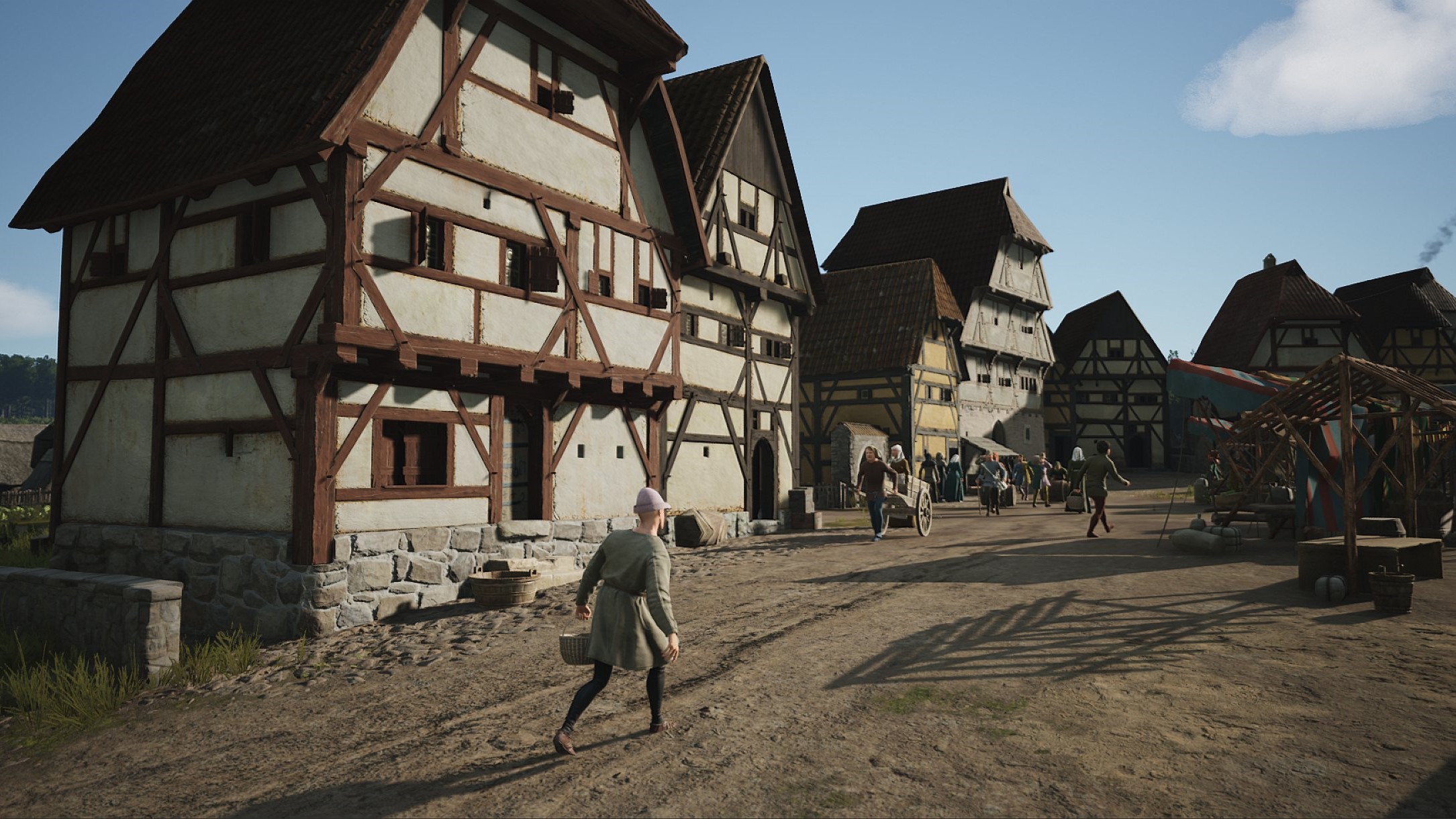Manor Lords publisher says the game's success is 'well beyond what we could have hoped'
"But ultimately Greg's making the decisions and driving the development: he is the developer."

Manor Lords is one man's unusual take on the joys of managing a medieval city and, after garnering a whole lot of wishlists, sold over a million copies within a few days of launch. The developer did try to set pre-launch expectations appropriately, warning players this was no Total War competitor, but the game's emergent narratives, relative polish, and the historically accurate NPC name Cuntz has charmed players and left it sitting pretty on around 25,000 'very positive' user reviews.
PCG had the opportunity to sit down with Tim Bender, the CEO of publisher Hooded Horse, about working with solo developer Grzegorz Styczeń of Slavic Magic on the game, and how they're trying to manage the scrutiny and demands that come with success on this scale. The main focus in these first weeks, says Bender, is paying attention to the fact that "there's so many people applying and leaving their thoughts and insights on the game."
That doesn't mean the plan is just to follow the community, though. Bender says the team will "have a patch coming up that's informed by everything people are talking about. In that way, it's a very responsive and very community driven development [and] that's part of the virtue of an early access release, to get such mass feedback, and really go out and engage in a dialogue and let that guide development."
The principle seems sound but, given Hooded Horse has been involved long before Manor Lords picked up the momentum it did, surely some things have had to be re-considered.
"It's not that we predicted [this]," says Bender. "But if there had been half the number of players, it would still for all intents and purposes be the same: there would still be an absolute ton of people playing and giving feedback, and looking forward to things.
"But to be perfectly honest, what we've seen is beyond hopes, right? No-one was sitting there thinking that the game was gonna have more concurrent players for its launch, 173,000 I think, than Total War Warhammer 3 and Civilization 6 on their launches. This was not expected. It went well beyond what we could have hoped, at this point it's just insane amounts of people."
It's the kind of thing that surely tempts a publisher to get more involved. The developer until this point has worked on the game as a solo project but, now it's out in the wild and that feedback is arriving, how is that relationship changing?
Keep up to date with the most important stories and the best deals, as picked by the PC Gamer team.
"There's a lot of support in place here that's looking at the comments and stuff, we've got a QA firm there in place, we've got a community team that are monitoring sentiment, and there's information being provided," says Bender. "But ultimately Greg's making the decisions and driving the development: he is the developer, he is deciding what gets done and what he agrees with. And he's going back to the community to ask follow up questions, so he's getting all this information coming in to him, and then he's deciding what to do with it and when to ask the question in the community."
Bender says both sides are wary of the pitfalls of being too led by players, and at the same time know "you will always make some people mad no matter what change happens." But that can't be allowed to "stop development or create an environment of fear" because "the main thing is you keep the game advancing forward."
Manor Lords has been careful not to over-promise, with Styczeń eschewing a traditional roadmap and refusing to set firm dates on when to expect certain features. That doesn't mean there's no plan, of course, and interestingly enough one of the loftier long-term goals for the game is to bring a little more period blood-and-thunder in.
"Castles, sieges, and siege engines are a fairly iconic part of the time period, and I have some grand plans for the implementation of these aspects," Styczeń told us. "I've previously showcased how some of the systems might work, and some of them were even in-game for testing at various points of development. Currently, I'm not yet sure how much of it will be available to play with at launch, and how much will be added over time during the early access period instead."

Rich is a games journalist with 15 years' experience, beginning his career on Edge magazine before working for a wide range of outlets, including Ars Technica, Eurogamer, GamesRadar+, Gamespot, the Guardian, IGN, the New Statesman, Polygon, and Vice. He was the editor of Kotaku UK, the UK arm of Kotaku, for three years before joining PC Gamer. He is the author of a Brief History of Video Games, a full history of the medium, which the Midwest Book Review described as "[a] must-read for serious minded game historians and curious video game connoisseurs alike."
- Christopher LivingstonSenior Editor

